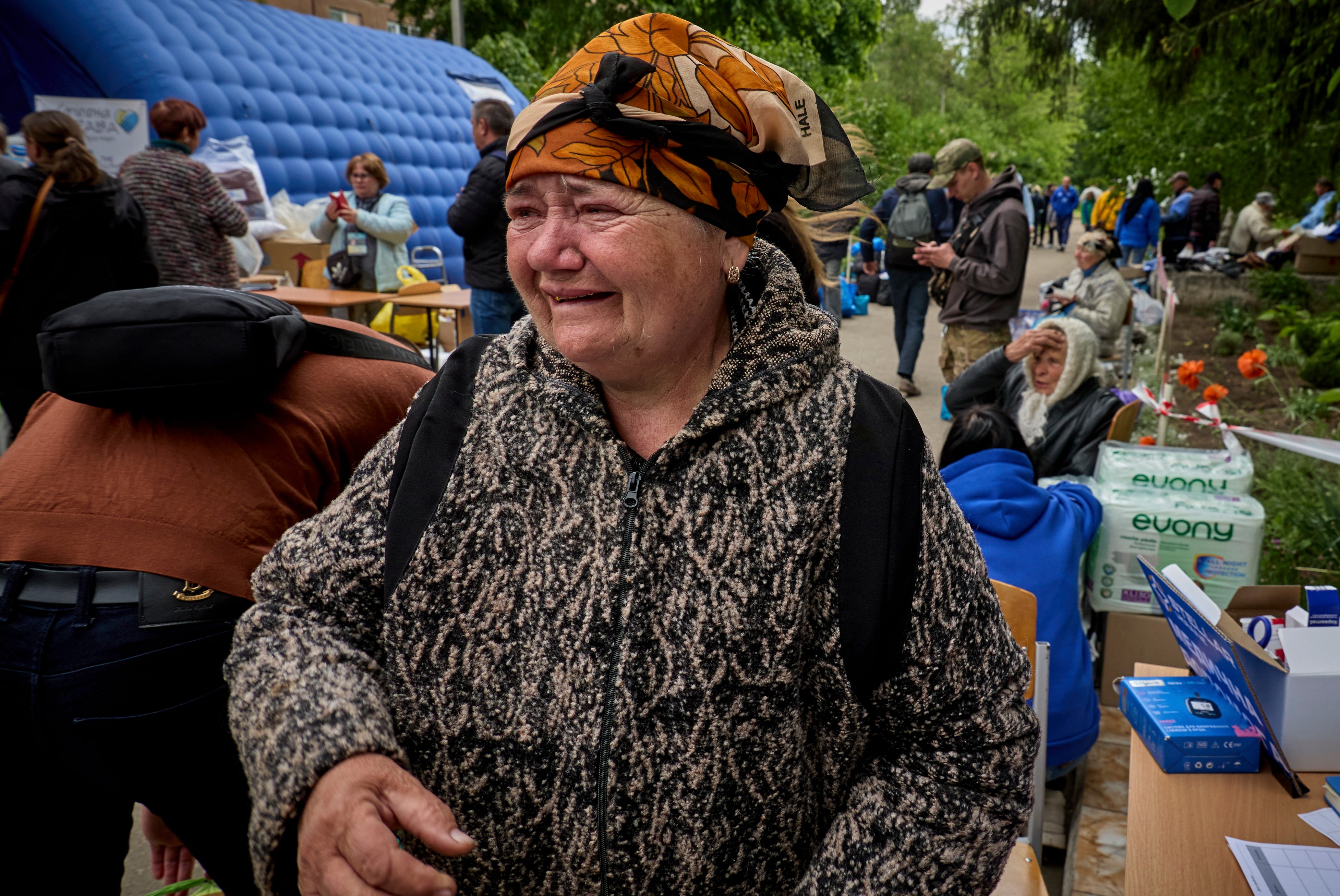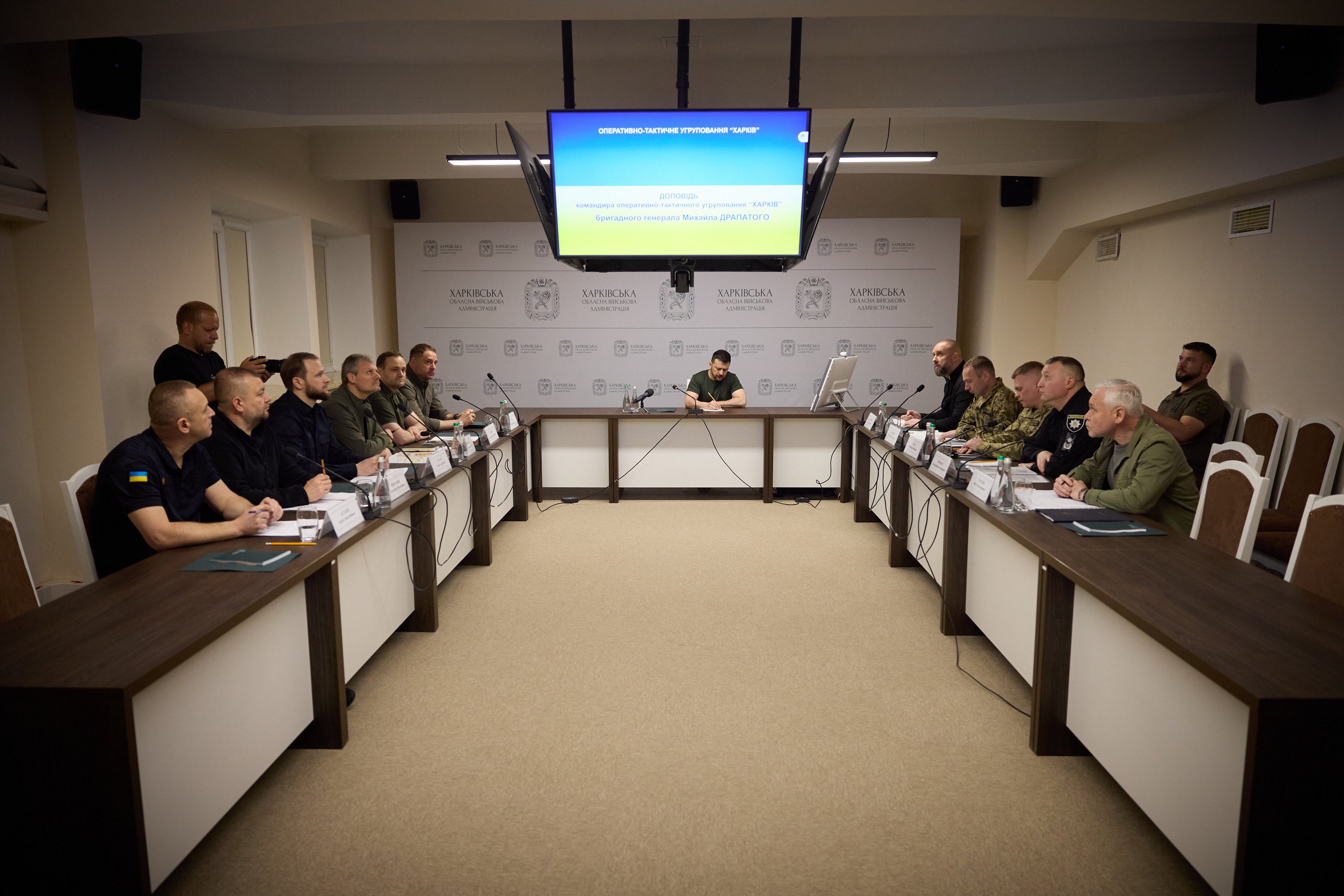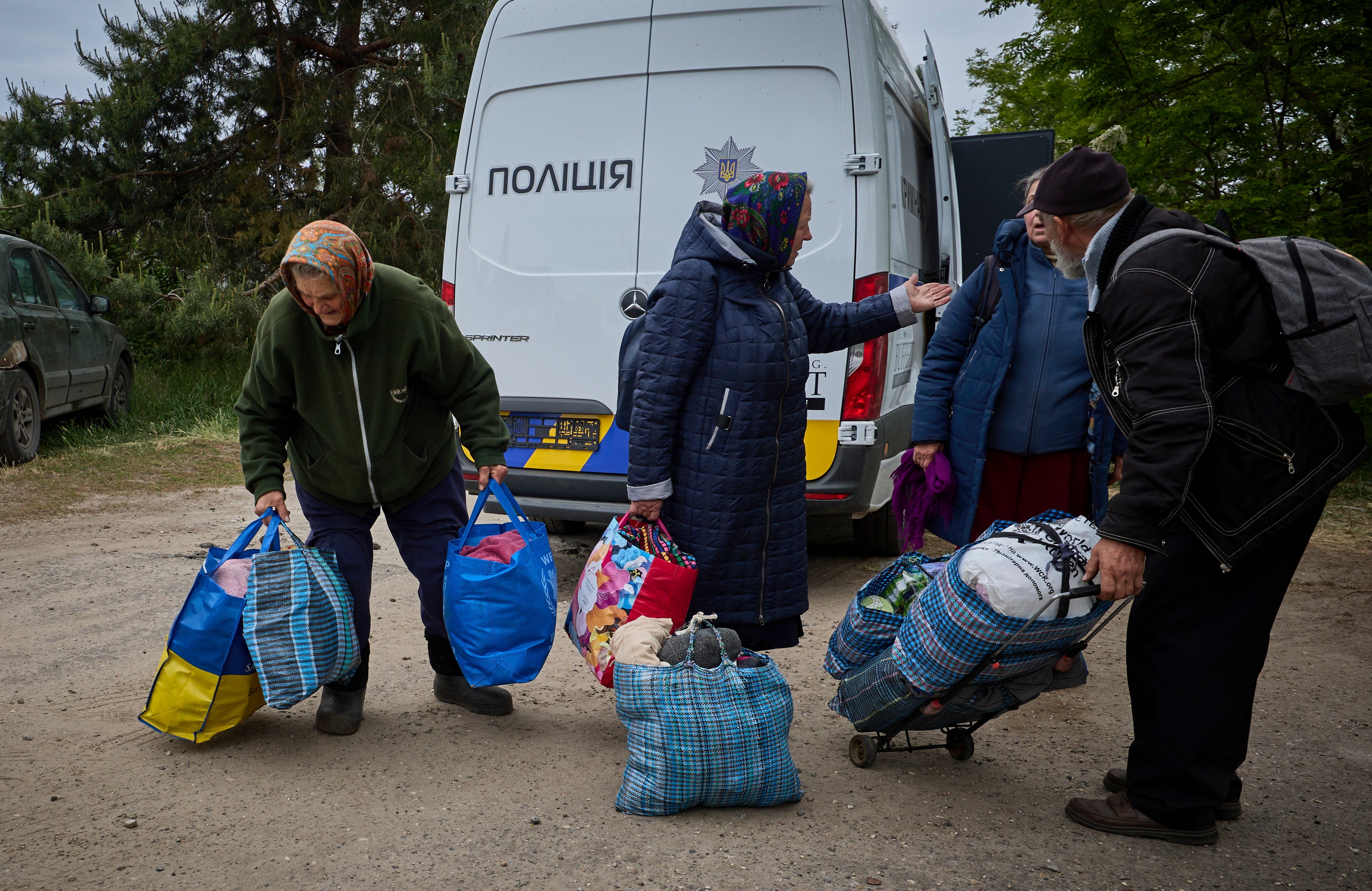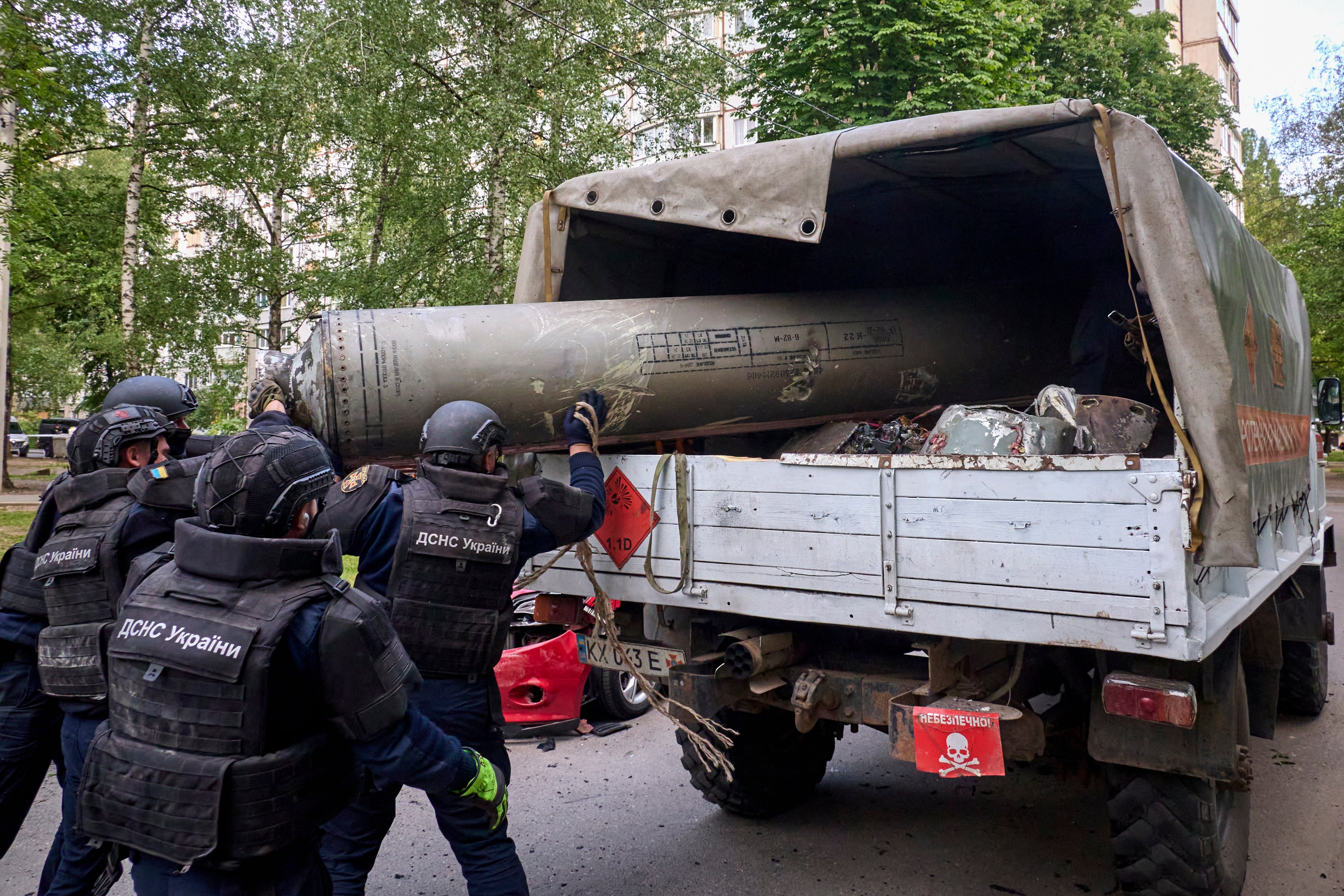They escaped Russia’s deadly assault on Kharkiv – now these Ukrainians face another catastrophe

The Russian assault on the Ukraine’s northeastern region of Kharkiv threatens to leave thousands of newly-displaced civilians without homes, UN officials and aid workers have told The Independent, as the United Nations grapples with an “extremely worrying” shortage of humanitarian aid.
More than 10,000 Ukrainian civilians have been forced to evacuate their homes after Russian forces launched a multi-pronged, cross-border attack into the Kharkiv region on 10 May. Around 66 square miles have been occupied in the two weeks in the Russian assault, while a number of other villages in the path of the assault have been abandoned, militarised or destroyed by Russian shelling.
Most of those have been some of the most vulnerable, according to charities operating in Kharkiv, women, children, the elderly and people with disabilities.
“The situation is really tense,” says Viktoriia Tiutiunnyk, an employee of the United Nations High Commissioner for Refugees (UNHCR) who has just left Kharkiv.
“A lot of evacuees from the bordering areas have come to the city. They are afraid the situation will get worse. They are desperate and they don’t know what to do.”
Ukrainian military officials had warned that Russia was massing troops on the border for months but the assault still took many by surprise, not least the Ukrainian soldiers stationed there, who suddenly found their communications via Elon Musk’s Starlink satellites had been knocked out by Russian signal jammers.


The ensuing advance – Russian forces have pushed around six miles into the region in one of the two attacks and more than four in the other – has been largely stabilised, but the humanitarian impact of the attack is only building.
The attack still threatens to bring the country’s second largest city, the region’s namesake capital, home to some 1.3 million civilians, as Russian troops inch to within artillery range. The city has already been heavily bombed, with at least seven people killed and dozens injured in a daylight attack on Thursday.
Evacuees have been arriving at a transit centre where they can spend a day or two at most, receiving financial and psychological support, before they are moved onto temporary housing or shelters.
Before the attack, Kharkiv was already home to around 200,000 internally displaced persons. There are being housed in hundreds of sites, incvluding buildings like university dormitories, spread mostly across central Kharkiv. The added influx from this latest assault, though only a five per cent increase, has squeezed the system to breaking point.
During a trip to the region on Friday, Ukrainian President Volodymyr Zelensky said he “paid special attention to the housing needs” of those that have been displaced, as they look to ensure nobody is left without accomodation.
“It has become really difficult to find space to accommodate all these people,” says Tiutiunnyk.
She says they are in touch with the authorities to find more accommodation but added that it was likely to be a “long running issue”. People told her they planned to stay in the collective sites for weeks, even months.
Ada Wordsworth moved from Britain to Kharkiv two years ago to run a charity called KHARRP that, among other humanitarian efforts, helps rebuilding damaged homes, visited some of these prospective collective sites last week.
They are in a dangerous area of Kharkiv – the day before she visited the dorm, a Russian missile had exploded in its yard – but that is the reality of living in the city.
She says she was “pleasantly surprised” by the state of the university dormitories, located in central Kharkiv, and that the local authorities seemed to have learned how to run the sites effectively after struggling earlier in the war.

“But they have no money to do renovations,” she says, adding that these works have to be completed before people can move in.
“They need new windows, they need new radiators and a lick of paint,” she says. “Those are the key things for people to move in. After that, any other repairs they could do after people arrive.
“It wouldn’t take long to do – maybe two weeks – but it can’t get done because there isn’t enough funding.”
The local officials told her they had applied for money from large Western agencies like, the UNHCR, but that the money had not come. They said their best chance of receiving any money was at the end of the tax year, nearly a year away.
While financing for these projects has always been difficult, a spokesperson for the UNHCR in Ukraine said they were having particular problems at the moment because their funding levels are particularly low.
“We are extremely worried about this funding situation,” says Elisabeth Haslund, a senior communications officer for the UNHCR in Ukraine from their head office in Kyiv.
“Other crises, other emergencies, are also taking up attention globally. The attention on Ukraine is decreasing. But the war is not decreasing, especially not with the latest attack [in Kharkiv].”


She confirms that the level of funding for this fiscal year is currently half of what it was the same time last year. Of the total target – just under $600m (£470m) – only 15 per cent has been raised, less than $100m. That figure at a similar point last year was around 30 per cent.
Asked what would happen if they failed to secure enough funding, Haslund says: “There is no doubt that unless we see sustained support, we will see major consequences.”
“This will have the biggest impact on the most vulnerable, those who need it the most,” she adds.
“We have thousands and thousands of evacuees who have fled from these border towns in Kharkiv with almost nothing. No belongings,” Haslund continues. These are older people, those with low mobility, who are extremely vulnerable. These are the people that will suffer if we don’t get more funding.”
The aid worker Tiutiunnyk says many of the evacuees feel safe in Kharkiv compared to their experiences in border villages, where Russian forces have relentlessly dropped bombs. Military officials say Vladimir Putin’s soldiers have been dropping 20 glide bombs, which are heavy-duty explosives known to level whole multistorey apartment blocks, every day on the town of Vovchansk, one of the main evacuated areas located just a few miles from the Russian border.
But she adds that the buildings they are staying in are is by no means safe. “It cannot be protected properly because it is under constant attack,” she says. “And if the Russians get closer, it will no longer be the transit centre, that’s for sure.”





